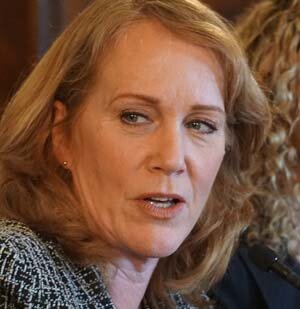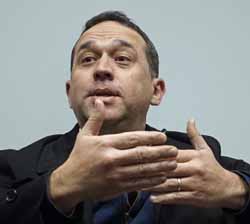New RI BHDDH Director Cancels Plan For "Health Home" Case Management Model
/By Gina Macris
This article has been corrected and updated.
A costly and controversial proposal for privatizing the management of individualized services for adults with developmental disabilities in Rhode Island has been axed by the new director of the Department of Behavioral Healthcare, Developmental Disabilities and Hospitals (BHDDH).
The director, A. Kathryn Power, acted out of concern that the state would face a “financial cliff” after an initial start-up period almost entirely funded by the federal Medicaid program, according to a BHDDH spokesman.
The managed care initiative, which Medicaid has labeled a Health Home, would have created a third-party entity to plan, coordinate and monitor services on a person-by-person basis.
“Director Power was concerned whether the Health Homes initiative represented the right direction for consumers and families, as well as the Department, given the temporary nature of the federal funding,” said the spokesman, Randal Edgar.
The Medicaid program offers 90 percent federal funding Health Homes for two years, but after that, the state would be responsible for nearly half the cost of maintaining the Health Home. On Feb. 28, a BHDDH spokesman said that long-term, the Health Home would have cost the state about $5 million a year.
Throughout the past year, the Division of Developmental Disabilities “conducted extensive stakeholder engagement around the design” of a Health Home for adults with intellectual or developmental disabilities, the spokesman said. “The scope and the projected enrollments were then used to guide the proposed rate methodology and cost analysis,” resulting in future costs estimated at about $5 million, the spokesman said. (It was incorrectly stated in an earlier version of this article that BHDDH had not calculated the long-term dollar amount that the state would have borne before Power cancelled the plans for a Health Home application.)
Power had been aware of community opposition to the Health Home idea. That factor, “coupled with her own experience of looking at the integrated health home model, led her to question the viability of this initiative,” Edgar said. Power returned to BHDDH after about 15 years in the federal Substance Abuse and Mental Health Services Administration (SAMHSA).
She said BHDDH will continue to pursue a case management model to satisfy a Medicaid rule that states eliminate conflicts of interest in three functions:
• funding
• delivery of services
• case-management; the planning,coordination, and oversight of supports.
Currently the state controls a critical element of the planning phase, an assessment called the Supports Intensity Scale (SIS.). The score from the SIS is fed into a secret algorithm that determines funding for a particular person,
The SIS was designed by the American Association on Intellectual and Developmental Disabilities to assist planners in compiling a program of services meeting the needs and preferences of particular individuals, an approach compatible with the Integration Mandate of the Americans With Disabilities Act. The Mandate, reinforced by the Olmstead decision of the U.S. Supreme Court, says that individuals with disabilities have the right to services and supports they need to live, work, and play in their communities.
Using the SIS to determine individual appropriations resulted in a cookie –cutter approach that incentivized a system of sheltered workshops and day care centers when it was begun in 2011 as a key feature of Project Sustainability, a fee-for-service reimbursement system for privately-run developmental disability services.
Two years later, the operations of one of those workshops attracted a civil rights investigation from the U.S. Department of Justice that has led to federal oversight of the developmental disability service system until 2024. The key goal: to correct violations of the ADA’s integration mandate.
The Health Home proposal would not have touched the link between funding and the SIS, which was singled out for criticism by the DOJ in 2014 findings that led to a statewide consent decree.
Opposition to Health Homes has come from the special legislative commission which recently concluded a study of Project Sustainability, the Developmental Disability Council, the Community Provider Network of Rhode Island, and many families also have raised concerns about the Health Home.
In general, the critics have said a Health Home would have created an expensive and unnecessary bureaucracy at the same time that the services themselves are underfunded. .
The wages of direct care workers and related staff remain below the levels offered by Connecticut and Massachusetts for the same work, generating high turnover. The agencies employing the workers teeter on the edge of solvency, according to a recently released report compiled by BHDDH consultants. Families who manage a loved one’s program themselves also have had trouble finding staff.


















